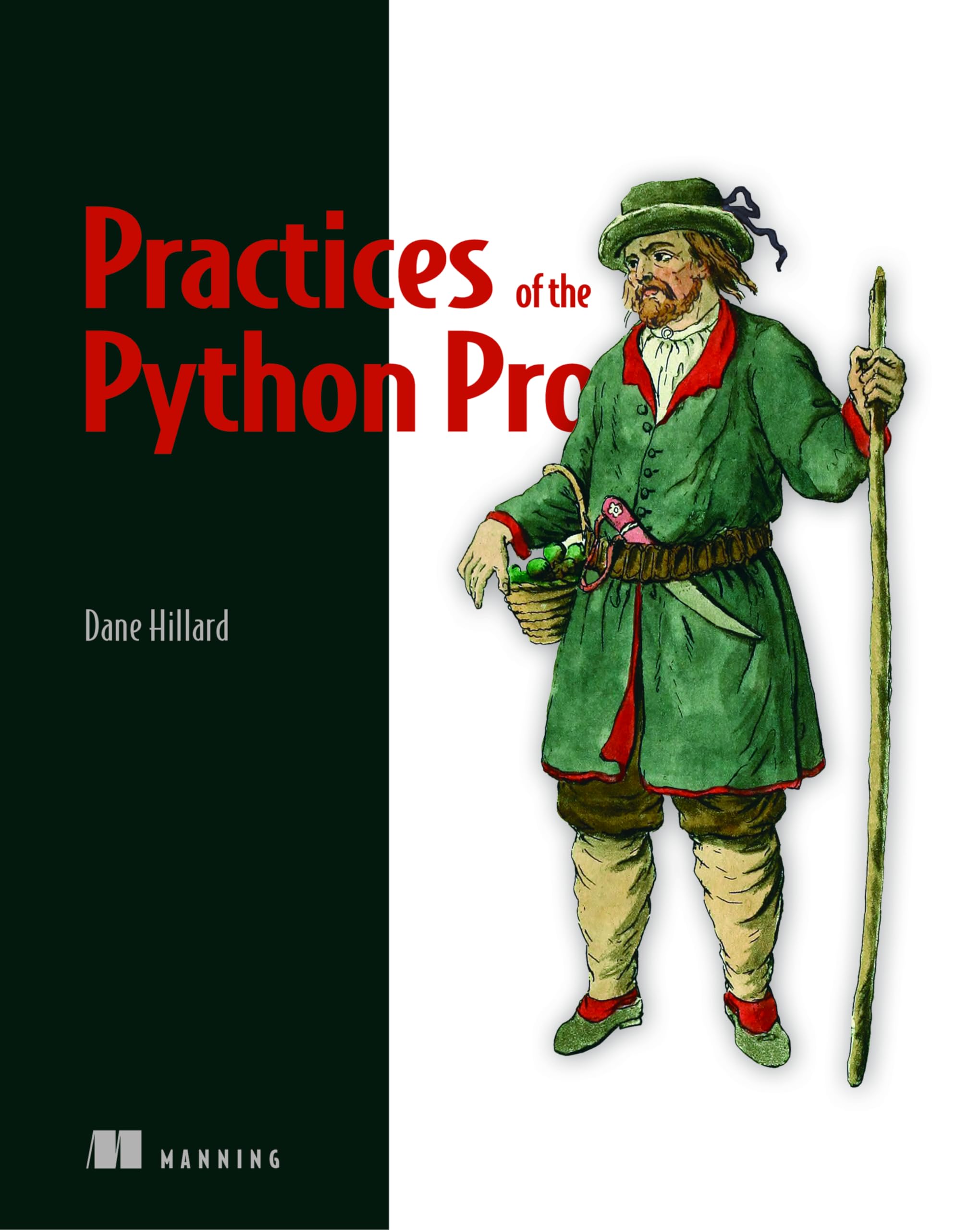Customer Services
Copyright © 2025 Desertcart Holdings Limited


Full description not available
D**E
My favorite Python book!
I have been an amateur Python programmer for a few years now, and this book was exactly what I needed! The content in this book is what separates the hobbyists from the pros. Highly recommend it!
E**R
Milk for babies; nothing here for "pros"
This book is worthless; I sent it back. You may derive some benefit if you are new to programming, but this book is full of warm milk for programming babies; it contains no strong meat, which "pros" require to produce commercial quality product at scale.
K**E
Highly recommend this book! A lot of useful information for all levels of knowledge.
I definitely recommend it, especially if you have been writing code for some time.Often, books / courses explain, for example, how to create a class, what inheritance is, but very little is written about when to use inheritance and when not to use it. This usually happens because it makes no sense to tell it right after we just learned what a class is. This book explains software design in clear and concise manner.Practices of the Python is also a perfect book for people like data scientists, biologists, network engineers who use Python as a tool in their work. Sooner or later, the scripts get bigger, the code grows, and you need to think one level higher. It's not yet about the design of large applications, but such things as:* what to use inheritance or composition* things to remember when writing functions, classes and their interaction* how to write code to make it easy to scale* "how much" code to write in a function / methodPractices of the Python Pro answers all these questions and more.
_**_
Nice overview of software-engineering practices
Practices of the Python Pro is a very nice overview of the software-engineering mindset and workflow. The book will appeal to beginner and intermediate programmers in different ways:* For beginners, you will be able to read the book and glean an understanding about how to think about the problem. There is enough code to demonstrate concepts concretely, but the code is there only to support the text with examples, so you won't get lost if you don't understand Python fully yet.* For intermediate programmers with a good knowledge of Python idioms, this book will serve as a welcome break from cookbook-style books and instead focus on the *meta* level of software design.The practices that are in the book are the ones that you have always heard about, but they are explained clearly and succinctly. While the book may be used as a reference (looking up a topic of interest), each chapter is best read in sequence. As the author himself states, it is like peeling an onion.Highly recommended!
K**R
It's a hard read
It's not that the concepts in the book are hard, it's that the wording & explaining of the concepts are choppy, and the examples don't translate well to Ebook format (it's actually really choppy and confusing).Also, there's not a whole lot of great examples in the code.I would recommend skipping it, as some other reviewers said, I believe other books might do you more justice.
V**N
Great idea but purely implemented.
The topics and concepts in the book are the ones that the Pro programmer will use. However, the author did a pure job of implementing it. Unfortunately, there are too many unneeded talks and comparisons instead of getting straight to the point. In addition, the author's example is so long that you must go back and forth between chapters to see pieces of the code.
C**N
Content okay, formatting dreadful.
The book is generally not bad, but the typesetting is dreadful. Many examples are nearly unreadable.
Trustpilot
1 day ago
1 month ago